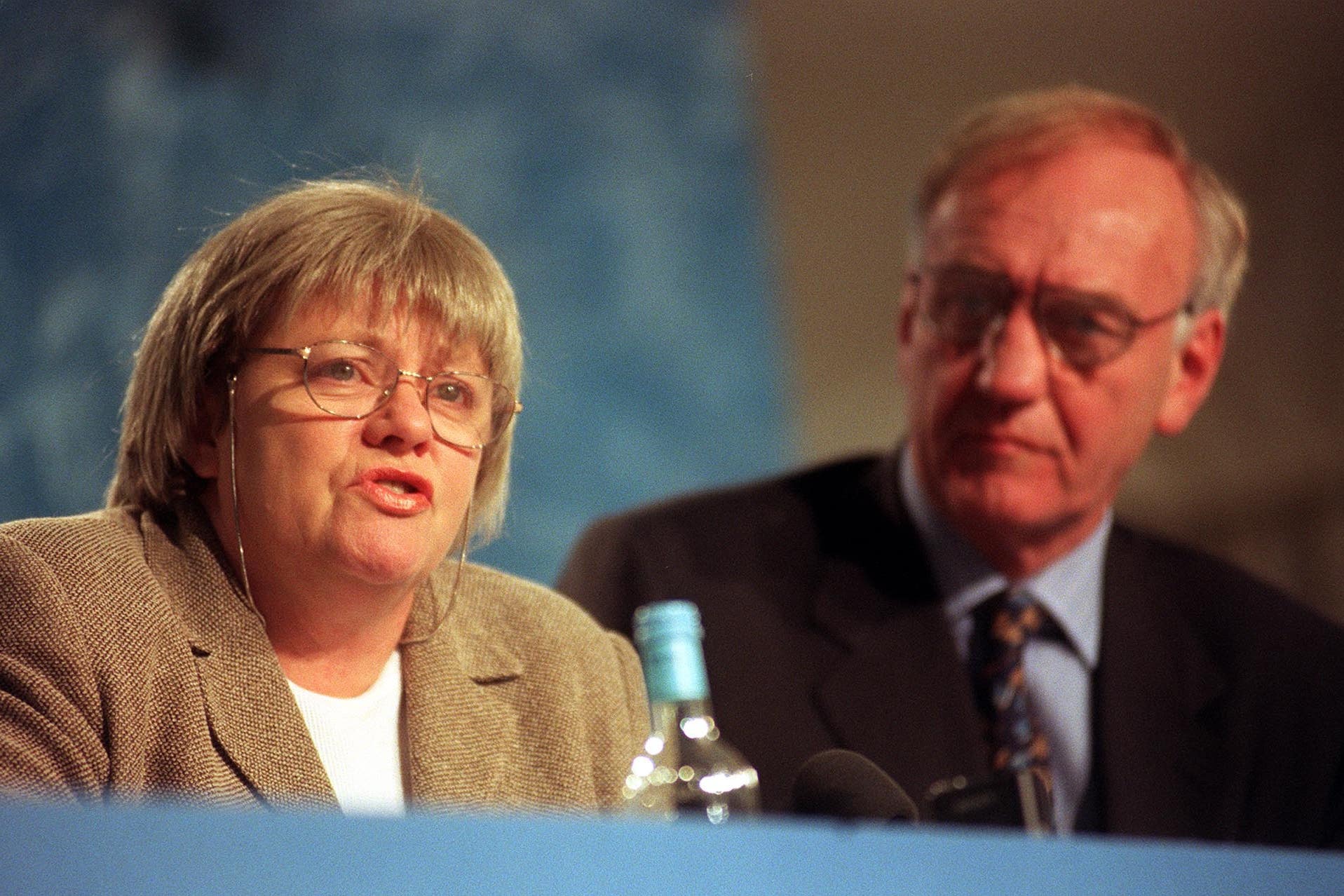Irish ‘liked to roll pitch in their favour’ in intergovernmental conferences
Declassified state papers reveal behind-the-scenes preparations for a meeting between the Irish and UK governments in 1998.

Your support helps us to tell the story
From reproductive rights to climate change to Big Tech, The Independent is on the ground when the story is developing. Whether it's investigating the financials of Elon Musk's pro-Trump PAC or producing our latest documentary, 'The A Word', which shines a light on the American women fighting for reproductive rights, we know how important it is to parse out the facts from the messaging.
At such a critical moment in US history, we need reporters on the ground. Your donation allows us to keep sending journalists to speak to both sides of the story.
The Independent is trusted by Americans across the entire political spectrum. And unlike many other quality news outlets, we choose not to lock Americans out of our reporting and analysis with paywalls. We believe quality journalism should be available to everyone, paid for by those who can afford it.
Your support makes all the difference.The Irish government liked to “roll the pitch in favour of their own team” in intergovernmental conferences with the UK, a senior Northern Ireland Office (NIO) official said in 1998.
Declassified state papers reveal behind-the-scenes preparations for a meeting between the two governments in Dublin just weeks before the Good Friday Agreement was signed in 1998.
The civil servant also remarked that frequent meetings between officials from the two governments during the Castle Buildings talks which led to the historic peace deal meant that the “high political passion” of the conferences had worn off.
A meeting of the Intergovernmental Conference (IGC) was scheduled to take place in March 1998 with then Northern Ireland secretary Mo Mowlam and Irish foreign minister David Andrews to lead the respective delegations.
State papers show that UK officials predicted that the Irish delegation would raise concerns about the levels of RUC and Army patrolling in Northern Ireland as well as disappointment that the recently constituted Parades Commission “inadequately represents the nationalist community”.
In a memo sent two days before the meeting, NIO official Peter Bell said the UK had “tended to leave the running to the Irish Government”.
He added: “In preparations for meetings of the Intergovernmental Conference they have generally tried to create expectations of outcomes, highlight the main points on which their ministers would focus, in short they have ‘rolled the pitch’ in the interests of their own team.
“I wonder whether we could not ourselves do better in future, beginning with the IGC in Dublin this Thursday?”
Mr Bell said: “The problem is that IGCs are not what they were.
“When NIO and Irish Ministers met infrequently; when the modern AI (Anglo-Irish) relationship was just being formed; then they were major events in the political calendar.
“Now, we enjoy (enjoy?) Ministerial colloquy on a virtual daily basis in Castle Buildings; the novelty – and indeed, usually, the high political passion – of the marriage has worn off.”
He added: “The IGC’s main function now is a ‘political theatre’ so it may be worth a little trouble to get the advertising right in advance.”
When the Good Friday Agreement was signed the following month, one of its elements was to create a new British-Irish Intergovernmental Conference (BIIGC) to replace the Intergovernmental Conference.
Mr Bell wrote another memo in June where he said the Irish government “never like to go too long without a meeting of the IGC”.
He added: “They had, however, accepted that to call a meeting before the Referendum, or even the Assembly election would be insensitive.
“They now accept that the same is true of a conference during the height of the marching season, and between Assembly election and Drumcree.
“This points, in their own mind, to a meeting in the second half of July.
“This degree of realism, even taking account of the arrival of the Agreement, is a welcome, if unusual step.”
Mr Bell concluded by saying that it was of the highest importance in the future not to give the impression that the BIIGC was merely the IGC rebranded.